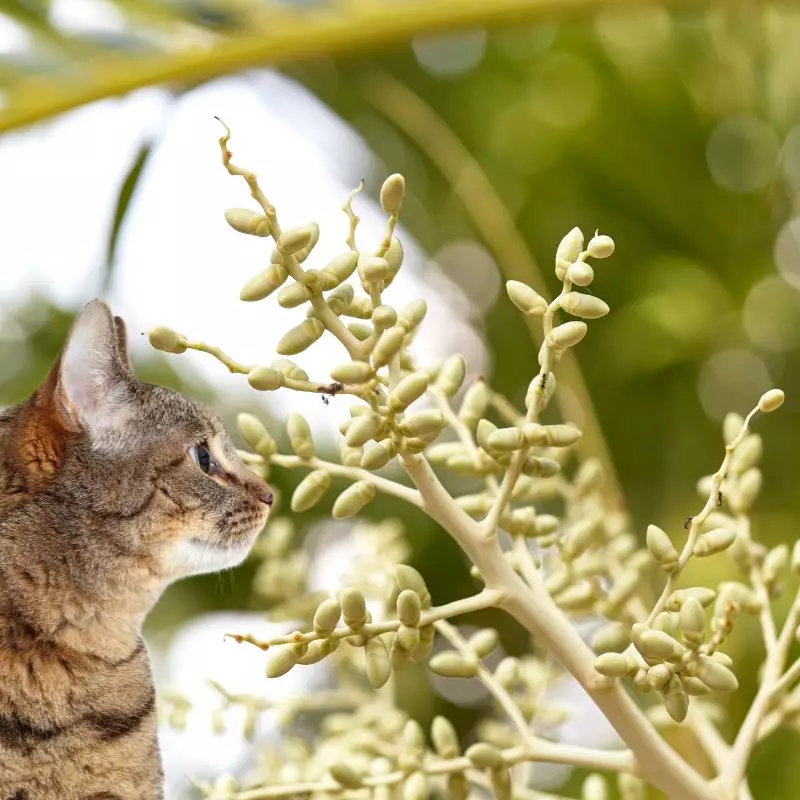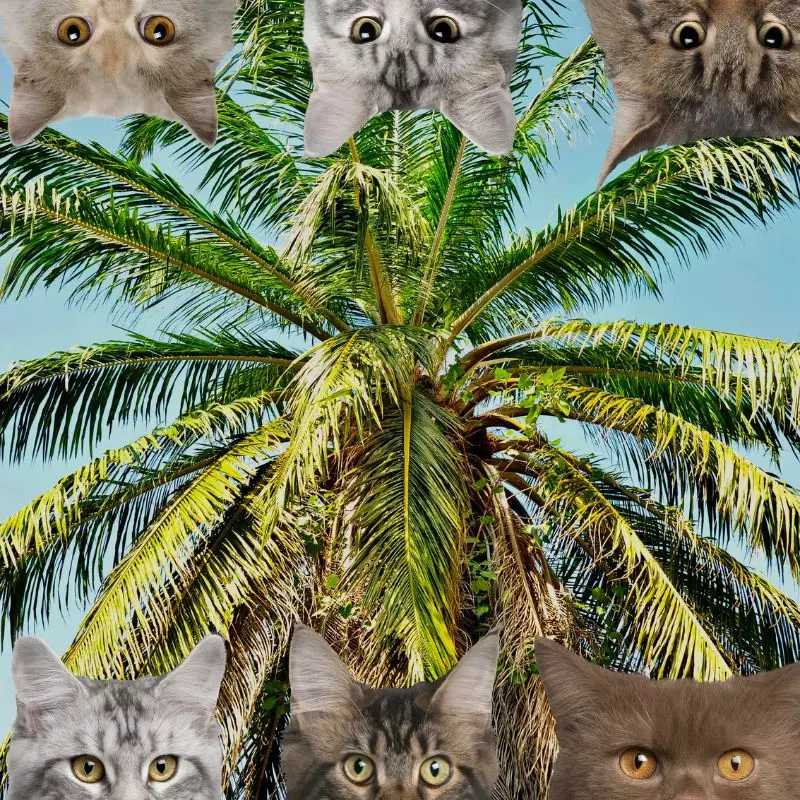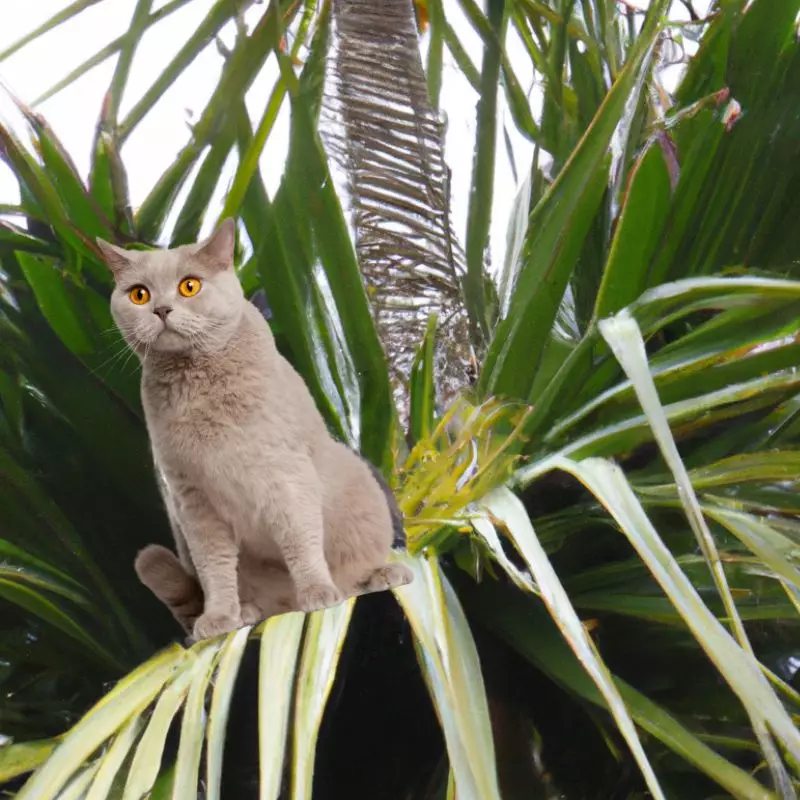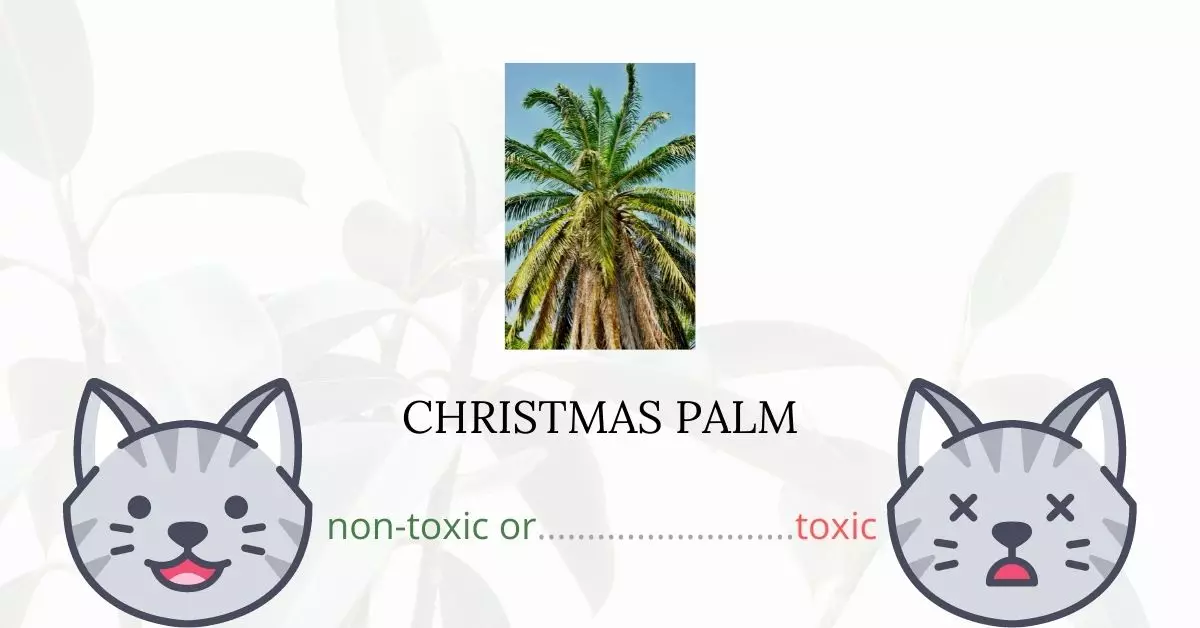Christmas palms are not toxic to cats.
This article was written in collaboration with a team of experienced DVMs (doctors of veterinary medicine). With their expert input, we aim to provide accurate and up-to-date information on the potential risks various plants pose to cats, specifically addressing the Christmas Palm in this context. Our findings are further supported by research from high-authority websites such as ASPCA and PetMD.
According to the ASPCA (American Society for the Prevention of Cruelty to Animals), the Christmas palm is listed as a non-toxic plant not only for cats but also for dogs and horses.
Can Cats Eat Christmas Palm?

Yes, cats can eat Christmas palm. Consumption of Christmas palm in tiny amounts is safe for cats. You should still take caution and not let your cats eat too much of this plant.
Plants are generally not suitable to be included in a cat’s diet. Cats are carnivores and they have a hard time digesting plant matter. If they eat too many plant materials, they may have indigestion or develop gastrointestinal symptoms like vomiting and diarrhea.
What is Christmas Palm?

Christmas Palm is also known for its other common names Merrill’s Palm, Adonidia Palm, Dwarf Royal Palm and Manila Palm. Botanically, it is known as Veitchia merrillii or Adonidia merrillii.
The Christmas palm is a kind of palm tree endemic to the Philippines. This palm was grown for generations in East Asia before becoming popular in the West. It is said to have become naturalized in the West Indies and Florida. It is often known as the “Christmas palm” because its fruits turn brilliant crimson in the winter. This palm is generally tiny and thin, reaching a height of 25 feet or 8 meters.
The Christmas palm grows well in pots and is well-suited to landscaping and cultivation. It can resist heavy rainfall and short droughts, but it does not like sea salt. These trees like full sun, but could tolerate some shade. They are not cold-resistant, hence their perennial outdoor use is confined to frost-free zones. This Arecaceae plant is commonly cultivated and thrives in tropical environments such as Hawaii and the southern part of the Florida peninsula. It is also one of the most widely planted decorative palms in the world, frequently seen in non-tropical environments such as shopping malls.
Keeping Cats Away From Christmas Palm

Restricting your cats access outdoors will minimize the chances of them getting in contact with plants of any kind. But it still better if you can train your cats to avoid plants.
If you have Christmas palm at home and your cats keep on getting near it, you may try spraying vinegar and water solution around the tree to deter them.
You may also place aluminum foil in your garden. Place the foil near your plants over the soil. If your cats happen to touch the foil, they will stop and stay away from it because they loathe the crinkly texture and sound of aluminum foil.
Plants to Avoid For Your Cats
If you are a cat owner and unsure if the plants growing in your yard are harmful to your cats, check out this list of toxic plants for cats. You can also check our list of non-toxic plants for cats.





